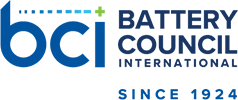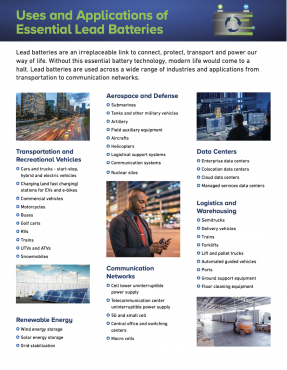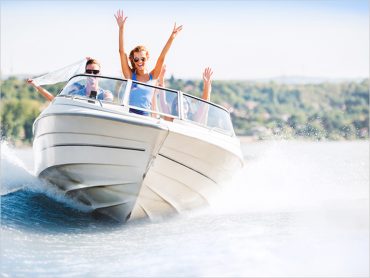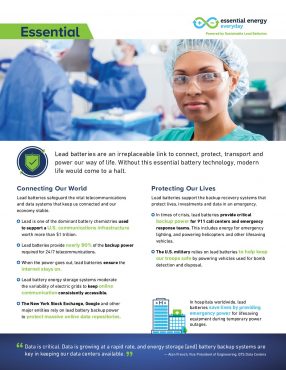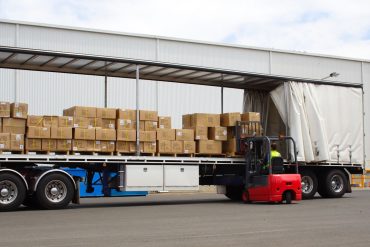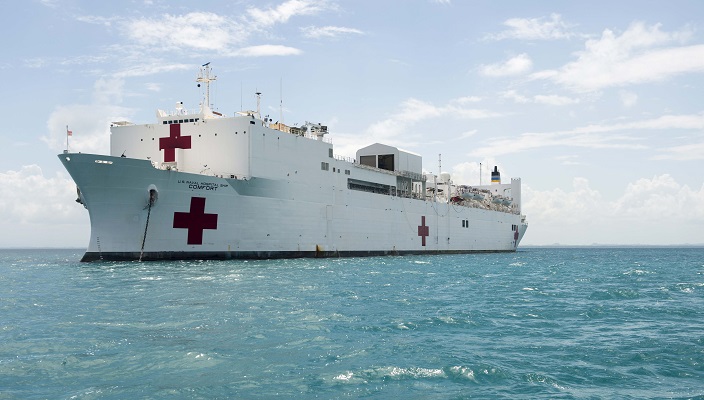
USNS Comfort Provides Disaster Relief and Humanitarian Care Worldwide
The sight of a massive ocean-going vessel with its size and power can be awe-inspiring. When combined with military might, it’s even more impactful. That distinction belongs to the USNS (United States Naval Ship) Comfort, which is supported by advanced lead batteries.
As a floating hospital, Comfort contains 12 operating rooms and up to 1,000 beds, and carries as many as 1,200 military medical personnel. At a length of 894 feet (nearly 2.5 times the length of a football field), and with a beam of 106 feet, one might imagine that it takes special skill to successfully navigate the seas.
Fortunately, the ship’s captain can rely on the behind-the-scenes power of lead batteries to help support critical instrumentation and metering, as well as navigation systems while in port.
American-Made Advanced Lead Batteries Provide Reliable Power
The company responsible for providing those batteries is East Penn Manufacturing Co. Headquartered in Lyon, Pennsylvania, East Penn provides the Deka Group 8D AGM batteries that assist the ship’s mission to provide comfort and aid to those in need.
“We are honored that our batteries are on board the Comfort hospital ship to support the valiant work of the personnel who serve on her,“ said East Penn President and CEO Chris Pruitt.
He explained the importance of using domestically made lead batteries like the Deka Group 8D with a model circular economy to support U.S. military efforts.
“It’s especially fitting that U.S. made batteries are providing the critical navigation services to ensure our men and women who serve in this capacity have reliable battery power,” he said. “Lead batteries have a domestic supply chain that is designed for reliability and sustainability.”
About the U.S. Navy’s Military Sealift Command
The U.S. Navy holds the distinction of being the most powerful and capable navy in the world. The U.S. fleet, under the auspices of the U.S. Navy’s Military Sealift Command, oversees the fleet and exists to support the joint warfighter across the full spectrum of military operations.
Under the category of Special Support Vessels are the Navy’s two hospital ships, Comfort and Mercy. Together, they provide acute surgical medical facilities when called upon to the U.S. military, and hospital services to support U.S. disaster relief and humanitarian operations worldwide.
Comfort’s History and Deployments
The USNS Comfort was originally built as an oil tanker and launched in 1976. In December 1987, it was delivered to the U.S. Navy and became the third U.S. Navy ship to bear the name “Comfort,” and the second Mercy-class hospital ship.
Since that time, Comfort’s deployments have ranged from the Iraq and Persian Gulf Wars to humanitarian efforts such as the Partnership for the Americas, which provided health care services to communities in need in 12 Central American, South American and Caribbean nations. Closer to home, in 2005, Comfort assisted in the Gulf Coast recovery effort after the devastation of Hurricane Katrina.
About East Penn Manufacturing and Deka Group Batteries
East Penn’s link to the military goes back three-quarters of a century. The company was founded more than 75 years ago by an Air Force veteran returning from World War II. Today, the company honors its military roots with support for its veteran employees, and through products sold to the Department of Defense and other government agencies.
East Penn’s Deka Group 8D AGM batteries (absorbed glass mat) are an advanced battery designed to deliver powerful bursts of starting amps and run electronics for a very long time. This is especially important for the vast array of electronics onboard a ship.
The battery’s rugged lead plates are cushioned by the glass mats for maximum power and performance. This type of battery is very common as back-up power for applications in navigation, telecom, and data centers to prevent service interruption.
